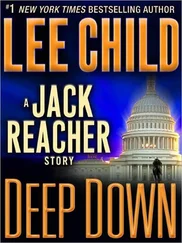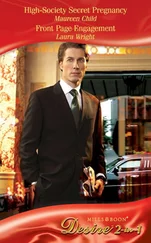Over there, at a table on her own, a woman in a soft blue dress. Not beautiful, but pretty. Smooth skin, television hair. She was sipping from a glass of yellow wine.
He finished the Tullamore in two quick swigs. An old conversation was coming back in him — gyms, swimming pools, Margaret Thatcher’s schedule. Sick fathers. Couldn’t let it grow.
He approached the woman in the blue dress before thought could murder impulse. Without the support of the stool he felt drunk. So much of life was lived in his own head these days. Shrubbery whipping low windows, a wind working up outside, and he put a hand on the chair opposite hers.
‘Hi,’ she said. Soft, quiet.
‘Hi,’ he said. ‘Hello. Can I —’
‘Why not,’ she said, so he sat.
‘I’m not disturbing your reading?’
‘Nothing here. Gave up on it a while ago.’ She picked up the paper and read from the front page: ‘“A drunk man set fire to a packet of peanuts and tried to make love to a lamp post, Belfast Magistrates’ Court has heard.”’
He leaned forward, happy. ‘Sounds like a pretty good opener to me.’
‘You like a good lamp post, do you?’
‘Not recently.’
‘But it’s that kind of night, is it?’
‘It might be,’ he said.
She smiled and her voice fell soft again. They talked about the whiskey. She said her name was Lena. Speech stalled after his drink was done and he had to wave twice to get another, plus one of whatever she’s … Chardonnay, yeah. There was a clock on the wall with shapely hands and no numbers. Dimly he recognised midnight. He’d left his book about knotweed in the bar on the Falls. He could picture it between the wall and the fruit machine.
What part of town was she from?
Oh, around.
‘Family here, have you?’
‘Some.’
A year, perhaps, since he’d slept with a woman. Everything these days seemed to flow into his work. Armies built up certain aspects of your character and folded others flat. It seemed to him that, of all the challenges his commitment to the Provos posed, it was the element of chance that really gnawed. The difference between life and death was as slight as walking home after the fourth drink instead of the fifth, rounding one corner instead of the next, forgetting to check under a car.
He sat back in his chair and resolved to get drunk. ‘Lena’s not a common name round here, is it?’
‘No,’ she said. ‘Are you disappointed?’
IN THE LIVING room the fire was burning for the first time since February. Lying on the sofa she drew her legs into her chest. Her father was in his armchair, snoring. Between each slurping effort at breath was a long interval of silence, his lungs always late in knowing they needed air. These silences contained a moment of thinking he was fine, a moment of thinking he was probably fine, a moment of thinking he was going to die, a moment of realising he was fine, a moment of waiting to be afraid all over again — and then she’d think about her own breathing, and that sounded wrong too, like a word you turn over in your head too long.
A blanket pulled over his knees. An old-man nap before the big reception. The MPs. Mrs T. Logs were glowing blue. There was the waggle of thinner flames up front. A sway of fatter flames behind. The wood was singing, crackling. Light touched the carpet, streamed across photo frames. She’d told John things, given him little parts of herself. He’d judged these things inessential.
‘Make sure I’m awake by five, Frey.’ That’s what her dad had said. Now it was 5.05.
She picked it up from the floor, the most recent postcard from her mother. She stared at the fireplace and blinked bright colours. A big flame puffed its chest and took in air. It rolled forward. A hissing sound loudened. The dots of colour bleached out behind her eyelids. Shouts from the slouchy boys next door. The brrrrrr of determined traffic. The scuffle and structure of a new school term, the criss-cross glances and one-liners, the depressing double periods, the arguments, the dipshit flared-up rumours, the constant pranks and inventive bitching — and it was possible to miss all this, all of it. On the windowsill her herbs were dropping leaves. Mint. Basil. Coriander.
Her mother’s opener was ‘I hope this postcard finds you well’, the closing line was ‘Hope your dad is enjoying his work’, and in between these words the card contained only one sentence: ‘We’re not up to much, but everything is fine.’ That was the sandwiching of it: hope — fine — hope . The word ‘everything’ was crammed desperate against the edge, as grimly appealing as the we . Sometime during the last year her mother had lost a personal pronoun. Had the famous Bob been reinstated, or was this someone new? Did her dad read these postcards when they arrived on the doormat? She felt sure that he was meant to.
Sometimes when she was younger she’d wondered if she was adopted. Probably lots of kids did. She’d wondered in truth every time her parents were lame. You thought maybe they’re not mine, maybe they don’t belong to me. I’m from elsewhere, because I do seem a bit more special than them. Not a genius or anything, not even all that interesting, just more full of feelings, more three-dimensional. They are just parents, which is not the same as people, and I cannot see the world through their eyes.
She was a little shit, was she?
She’d knocked on her mother’s door to demand that her school skirt be taken up, because no one wore it this long, because really was she trying to humiliate her or what? And she saw from all the smudged mascara that her mother had already been crying, and wow she cried often, wow she didn’t stop; you’d think a normal human being would have dried up by now. ‘Give me some privacy ,’ Vivienne had said, or something like that, and from such small beginnings insults escalated. She hadn’t realised parents wanted privacy. It did not seem reasonable that they should want it or get it, and she hadn’t thought that her mother might have bigger things on her mind than the length of her daughter’s skirt. ‘Self-absorbed.’ ‘Selfish.’ ‘You can be a perfect little shit, can’t you?’ ‘Like father like daughter, the world revolves around you!’ So Freya wiped away her own tears, fresh-sprung, hot, and she nuked her. ‘At least I’m not a miserable worthless slutbag. At least I don’t go around fucking ugly old men just because they have stackload of money.’ Quite good. Nice rhythm. And after the tantrum there was silence, many hours of silence, and then her mother asked her how she had known, so she told her: I saw you kissing that man in that bar on New Year’s Day. I saw you through the window. That guy Bob or Rob and the two of you drinking champagne. I was so ashamed. I wish most days you weren’t my mother.
‘To be cynical is a sin.’ That’s what the priest said at church that one time she went, and she’d only gone because she thought God, on the off chance He existed, might see fit to make her mother visit her, actually care. She never meant to push her away forever. Always meant those words to be a nudge rather than a shove. A little nudge, a form of contact, intimacy inviting a response. And her father could have actually gone and got her mother if he wanted. He could have taken control at any number of moments. He could have done the grown-up thing. He could have actually tracked her down and shaken her and said listen, what are you doing, spend some time with your daughter and don’t let the gap grow, or he could have shaken Freya and said the same. But he didn’t like confrontation, did he?
Sarah lost her mum to cancer six years ago. People saw how bad that was and granted a special privilege of grief. But if your mum runs off with someone with a three-letter name — a name that happens to be the most stupid palindrome ever — she’s a slut and your life’s a Carry On film. People want to hear your gripes for a week at most, a quick summary of the dirtier details. After that, something changes in their voices and you realise you’re being a burden. You’ve lost her but people don’t treat it as a loss. On a scale stretching from everyday annoyance right up to Death, it lands closer to mislaid house keys than cancer. And time passes and Friday is Saturday, and Saturday is Sunday, and Sunday night is the need to make your sandwich for school. And you just have to look at your tiny allotment of trouble, so small compared to that owned by others, and you have to say, ‘All right, no worries, I’ll take it, it’s mine.’ You have to acknowledge it’s nowhere near a death even though she is gone, fully gone. And you remember the things she used to say to you when you were small and she thought you were asleep, the room pitch black and she would begin talking and talking, her breath against your hair and she would go on and on, softly chattering for minutes and minutes, and you loved it, you felt all the life in her running into you, the sugar rush of her feelings and thoughts. She existed to whisper into your ear.
Читать дальше












